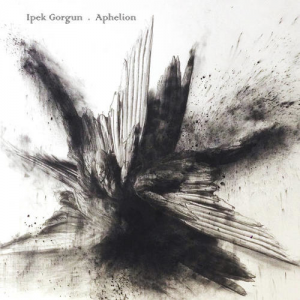 Aphelion unfolds with the chirruping scratchiness of a host of slothful machines awakening and dozing, dreaming fitfully or snoozing comfortably in the electro-acoustic bath that Ipek Gorgun has prepared for them. Listened to in a state of semi-willing wakefulness in the imminent expectation of the arrival of hypnotised, tired-out dozing that movement through a landscape can engender, Aphelion matches those moods and the state of hovering just between consciousness and collapse. Its cyling shifts and half-cogent tones seem to speak of a dormant world of figurative symbolism and archetypal tone poems celebrating the restful dissolve into the slumbering arms of an electronic Morpheus.
Aphelion unfolds with the chirruping scratchiness of a host of slothful machines awakening and dozing, dreaming fitfully or snoozing comfortably in the electro-acoustic bath that Ipek Gorgun has prepared for them. Listened to in a state of semi-willing wakefulness in the imminent expectation of the arrival of hypnotised, tired-out dozing that movement through a landscape can engender, Aphelion matches those moods and the state of hovering just between consciousness and collapse. Its cyling shifts and half-cogent tones seem to speak of a dormant world of figurative symbolism and archetypal tone poems celebrating the restful dissolve into the slumbering arms of an electronic Morpheus.
A certain urgency imposes itself on the pulsations and soft throbbing of “Dendrite”, stirring the pot of perception into alertness, the sense of approaching something almost palpable, if not ominously so then pregnant with anticipation and the expectation of a howling yet to come. That it never does, exactly – not to give the ending away – is one of Aphelion‘s great strengths; there is no sudden jolt into perception-switching awareness, no alarms pulling the sleeper up from the depths where unheimlich voices whisper in the realm of muttering Jungian archetypes. Some of the rippling bell tones of “Nightingale” rival the softened wake-up tones of modern mobile phones for their persistently gentle yet persuasive arguments that awake is the place to be, and that all dreams must, if not die, then fade as the light and daytime arrive to take their place
-Antron S Meister-



